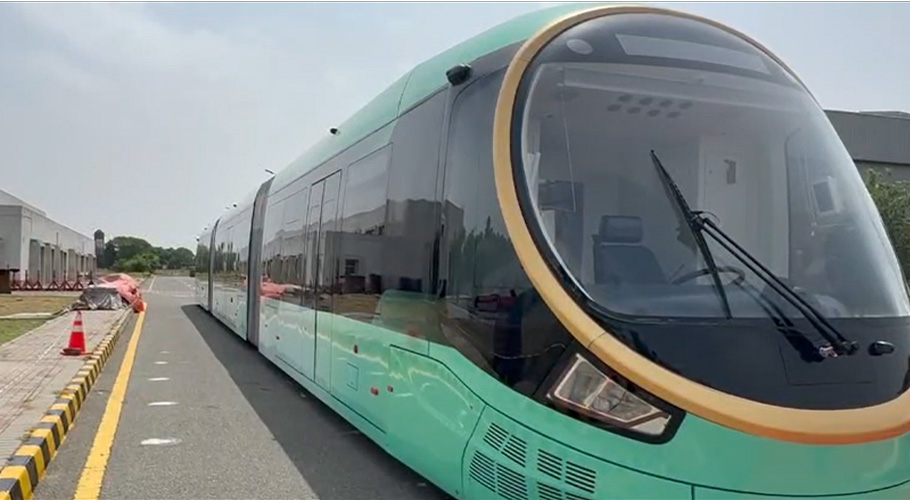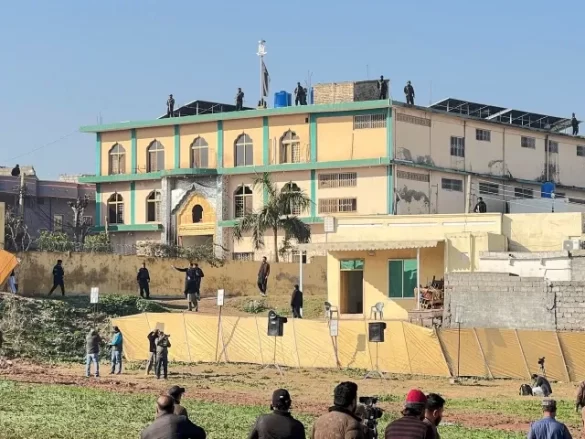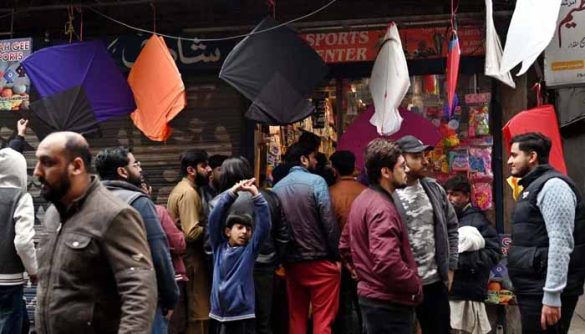First Trial of Urban Electric Train Conducted in Lahore
In a significant milestone for Pakistan’s urban transport system, Punjab Chief Minister Maryam Nawaz conducted a trial journey of the country’s first urban electric train, the Super Autonomous Rapid Transit (SRT), in Lahore. The Chief Minister personally monitored the road test from Ali Town to Muslim Town on Tuesday, inspecting the train’s performance, design, and passenger amenities during the journey.
The initiative is being hailed as a major leap toward modernizing public transportation while addressing growing concerns over traffic congestion and environmental pollution in one of the country’s most densely populated cities.
Features of the SRT: A Blend of Chinese and Turkish Technology
Briefing the media during the event, Punjab’s Minister for Transport Bilal Akbar shared technical details of the electric train, which has been developed using a combination of advanced Chinese and Turkish technologies.
Currently, the SRT comprises three carriages with the potential to expand up to four, depending on future demand. Each train has a seating capacity of 320 passengers, and it can travel up to 40 kilometers on a single electric charge.
The fully air-conditioned train offers modern amenities aimed at improving commuter comfort, safety, and accessibility. It is designed to operate within city limits, helping reduce reliance on traditional fossil fuel-based transport modes.
Environmental and Urban Impact
According to the Punjab government, one of the core objectives of launching the SRT is to mitigate air pollution and reduce traffic congestion—two major challenges faced by urban centers like Lahore. The electric propulsion system of the SRT offers a zero-emissions solution, which could play a significant role in improving the city’s air quality.
Punjab’s capital, which ranks among Pakistan’s most polluted cities, frequently sees hazardous air quality levels, particularly during winter due to smog and vehicular emissions. Introducing sustainable alternatives like electric public transport is seen as a vital component of broader green infrastructure efforts.
Chief Minister Maryam Nawaz emphasized this aspect during her remarks, stating:
“The SRT marks a crucial step toward improving Lahore’s traffic management and environmental health. The people of Punjab are now witnessing positive change every day.”
Public Response and Expansion Plans
The test run of the futuristic-looking electric train drew considerable attention from citizens. Onlookers gathered along the route to catch a glimpse of the train, many expressing both surprise and delight at the sight of such a modern transport system running through their city streets.
The positive reception seems to have emboldened the provincial government’s ambitions to scale the project. Chief Minister Nawaz announced that preparations for launching SRT projects in Gujranwala and Faisalabad are already complete.
“We are fully ready to roll out similar systems in other major cities. Gujranwala and Faisalabad will be the next to benefit from this transformative urban mobility initiative,” she added.
A Step Toward Modern Urban Mobility
The SRT represents a significant pivot in Pakistan’s public transport policy—from diesel and petrol-driven systems to cleaner, electric-based mobility solutions. With urban populations expanding rapidly, experts stress the importance of investing in sustainable public transport that is affordable, efficient, and climate-resilient.
If successfully scaled, the SRT project could lay the groundwork for a broader shift in how Pakistani cities manage urban transportation—moving away from individual car ownership towards integrated, mass transit systems that prioritize environmental and social well-being.
Looking Ahead
As global cities race to decarbonize their transport sectors, Pakistan’s adoption of electric train technology signals a noteworthy, if overdue, entry into the sustainable urban mobility movement. While challenges related to infrastructure, financing, and maintenance remain, the Lahore SRT’s successful trial sets a hopeful precedent.
With political will and continued investment, projects like the SRT could redefine how millions of Pakistanis commute daily—ushering in a cleaner, faster, and smarter transport future.
Read this news in Urdu on News Alert Urdu















